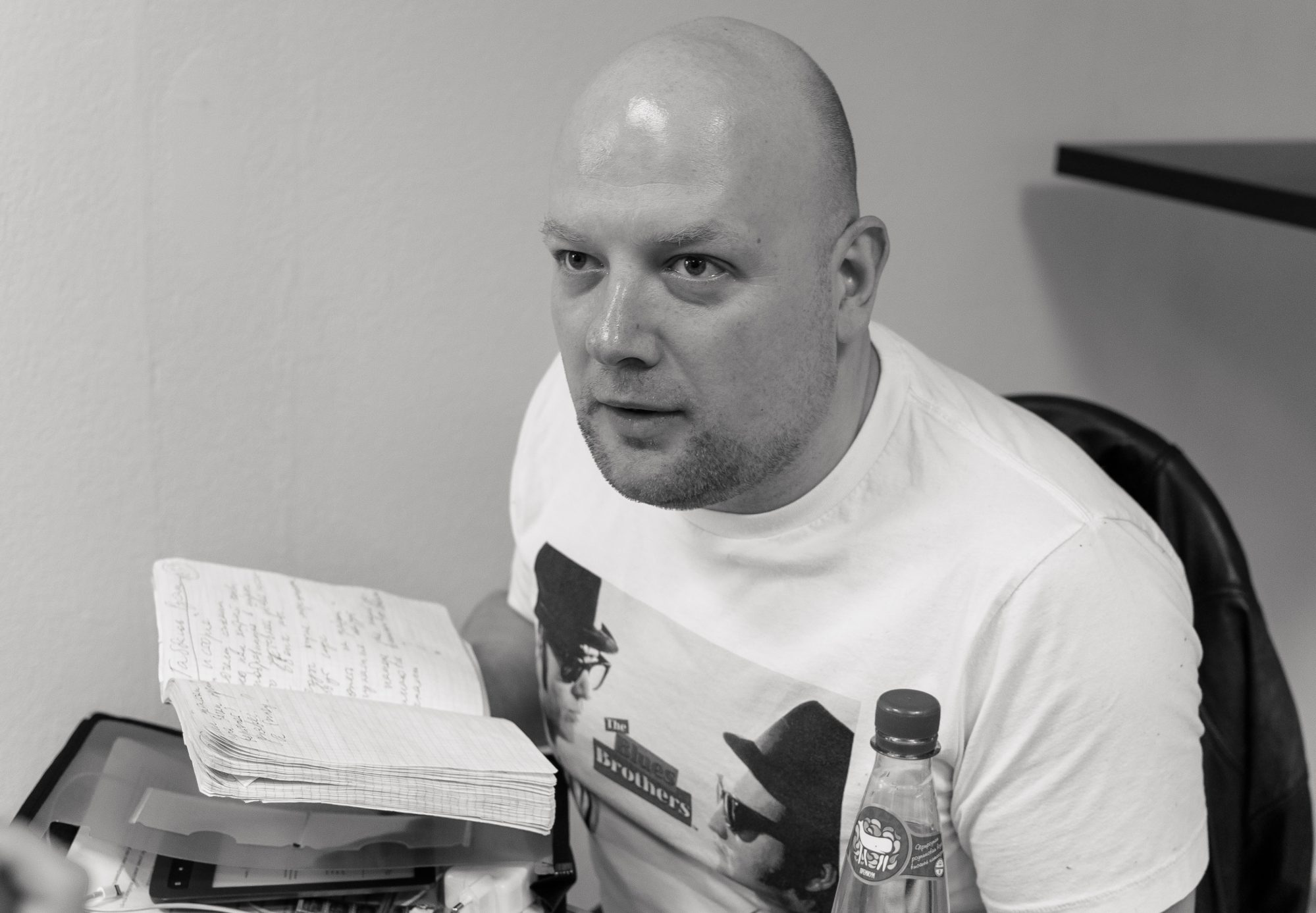by Robert Kerr
 Playwright Robert Kerr talks with Rodion Beletsky (pictured left) about his play, NOISE FOLLOWING THE PLANE OR A CONVERSATION THAT NEVER HAPPENED. An English translation of the play will receive a staged reading at The Lark on November 5th, at 7pm as part of the Russia/US Translation Exchange.
Playwright Robert Kerr talks with Rodion Beletsky (pictured left) about his play, NOISE FOLLOWING THE PLANE OR A CONVERSATION THAT NEVER HAPPENED. An English translation of the play will receive a staged reading at The Lark on November 5th, at 7pm as part of the Russia/US Translation Exchange.
Reserve your seat now, all tickets are free!
Robert: Let’s start at the beginning: What got you started writing plays? What is it about theater that attracts you as a writer?
Rodion: The high school I went to was very unusual; it was the first one in Moscow to offer a theater class to the students. It was there, at age 15, that I wrote my first play. The play was silly, an absurdist play which was called A Nightmare or Corn-flowers. Quite unexpectedly for me, it became a success with my class-mates, and for a while my two best friends even undertook to pay me one ruble a day to have me write something on a daily basis. I know theater from the inside, and have a rather extensive experience as an actor. But acting on stage is not my thing at all. Much more than being directly involved in theatrical action, I enjoy standing a little bit to the side and inventing things to happen on stage.
Robert: What was the genesis of Noise Following the Plane? (That’s a great title, by the way, and I love how you work the image into the play). If you don’t mind my asking, what is the play about for you?
Rodion: I lost a close friend. And it felt terrible, it was a very hard blow. I started writing the play a few days after his death. That was a way to talk to a person I’ll never talk to again. The stories I tell in the play are based on real events, except that, of course, as a professional author, I added some things, highlighted others, and “drove in” some points. Unlike my other plays, that one was written very fast. It took less than a month.
Robert: Have you ever had your plays translated into another language before? If so, what was your involvement in the process?
Rodion: Yes, my plays have been translated before. Into Spanish, English (by Graham Schmidt), Ukrainian, and staged in those languages. I was not involved in the process of translation, just answering questions the translators had. I have a dream of having my comedy, Polyglots, translated into English. The point is that the entire play unfolds in an English club for language learners in Moscow. All characters use heavily Russianized English. I think reproducing this hybrid lingo would be an interesting challenge for a translator.
Robert: What are your goals or expectations for your residency at the Lark, and for the translation of Noise Following the Plane? How concerned are you about conveying anything that is specifically “Russian” to an American or English-speaking audience?
Rodion: I believe that by combining the efforts of the translator, director, and actors, we will be able to make the specifically “Russian” parts of the play clear and accessible. These parts are very few. I think any audience will be able to relate to the play the way anyone can relate to a dialogue on life and death, close friendship and all those things that people never have time or daring to say to each other while still alive. I want people to laugh and cry. My most important expectation is a lively emotional response on the part of the American audience.
